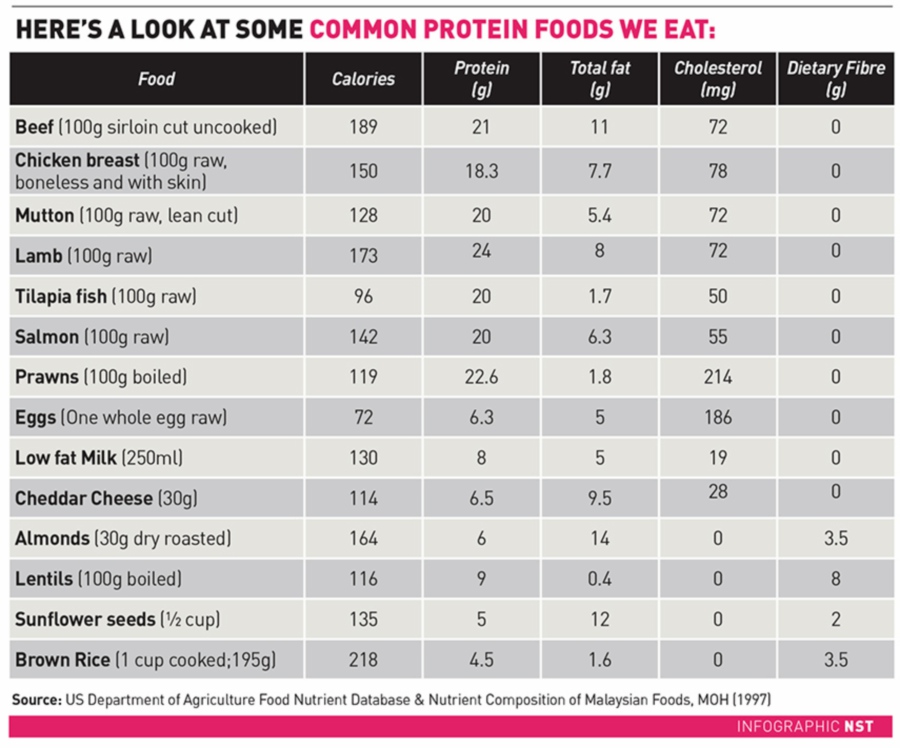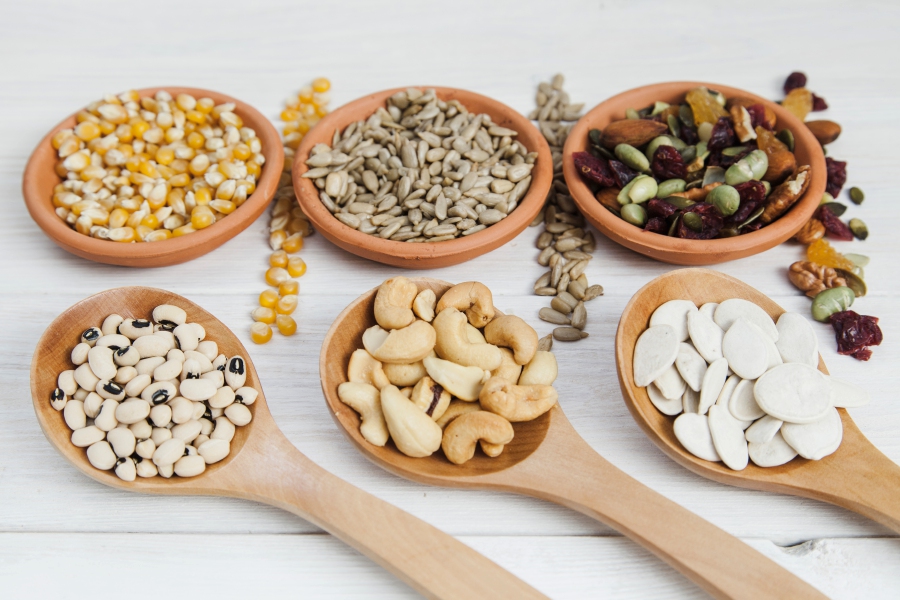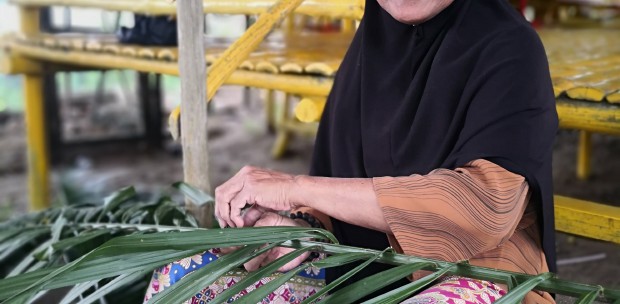Your muscles’ building blocks
PROTEIN is an essential part of our daily diet, like how we need carbohydrate, fat, vitamins, minerals and water. It is needed for growth and development of muscles — body builders with flexed, rippling muscles need a lot of it.
But do you know protein is necessary for various important functions for overall good health? All cells in our body contain protein — from our skin, nerves, blood and cartilage to ligaments and bone.
Our ligaments, bones and cartilage contain collagen proteins. Our hair, nails and skin have keratin proteins. Melanin proteins determine the unique colour of our eyes, hair and skin. And proteins in our muscles allow them to contract so that we can move effortlessly.
Besides that, antibodies, enzymes and hormones that play roles in important body functions are also proteins. Now you can see how important proteins are to us!
How much protein do we need to eat daily?
According to the Recommended Nutrient Intake for Malaysians by the Ministry of Health Malaysia, an average adult needs one gramme of protein for every kilogramme of body weight for good health. So, for example if you weigh 65kg, you will need approximately 65g of protein in a day.
Not getting enough protein in your diet can cause loss of lean body mass, slow healing of wounds and make you more susceptible to infections.
ANIMALS AND PLANTS
Foods that contribute protein to our diet come from both animal and plant sources. Animal food sources include meat, eggs, seafood and dairy. Plant proteins are found in beans, nuts, seeds, grains and certain vegetables. The difference between animal and plant protein lies in their fat and cholesterol content. Plant proteins are much lower in fat and have no cholesterol.

As you can see, the different protein sources have varied amounts of fat and cholesterol. Depending on the amount of protein food choices you indulge in, you can inevitably end up consuming too much fat and cholesterol than what your body needs.
This is why health guidelines recommend that you be mindful of your portion and also balance out your protein intake with more plant-based choices.
The Malaysian Dietary Guidelines recommends two to three servings of protein foods per day for an average adult. A serving of a protein food is roughly the size of the palm of your hand.
The guidelines recommend at least one serving each of our protein choice to be from beans and fish, instead of just meat alone, as they are lower in artery-clogging saturated fat.
Another useful portioning tool to help you eat healthy is to follow the Malaysian Healthy Plate by Ministry of Health.
Always keep its catchy tagline “sukusukuseparuh” (quarter, quarter, half) in mind when you are serving yourself a plate of food. Fill a quarter of the plate with a lean protein food, a quarter with a grain and half of the plate with vegetables.
WORKOUT PARTNER
Having something to eat with a combination of protein plus carbohydrates before and after your physical activity will help sustain your efforts better.
If your last meal before your activity was several hours ago and you are feeling hungry, have a small snack that combines some protein with a carbohydrate. I’d suggest a serving of fruit with some yogurt or a handful of nuts and raisins. This will give you a steady release of energy to help you through your workout.
During your workout, your body will use up glycogen, which is stored energy in your muscles. It is recommended that you eat a healthy meal that combines protein and carbohydrates within 30 minutes to an hour after you exercise.
This will help you keep your metabolism up, replenish your energy stores, plus build and restore your muscles. Two hours post-workout, your body’s ability to replenish muscle energy stores is less compared to if you ate a meal within 30 minutes to an hour.
Commuting after your exercise and cooking a meal when home may take time. Plan ahead and bring a snack with protein and carbohydrate that you can eat right after your workout. Some easy choices would be a handful of nuts and dried fruit, a simple sandwich, or a dairy based drink that contains protein.
This small post workout snack will also help you to not get overly famished after your exercise, so you don’t sabotage your wonderful effort by overeating because you can’t control your hunger. That’s a common mistake I often see in a lot of people and is one of the main reasons they never see results in their fitness goals! Therefore, always keep in mind the “sukusukuseparuh” portioning for your healthy post-exercise meal.
* Indra Balaratnam is a consultant dietitian who believes in simple, practical ways to eating well and living healthy. She can be reached at [email protected]





